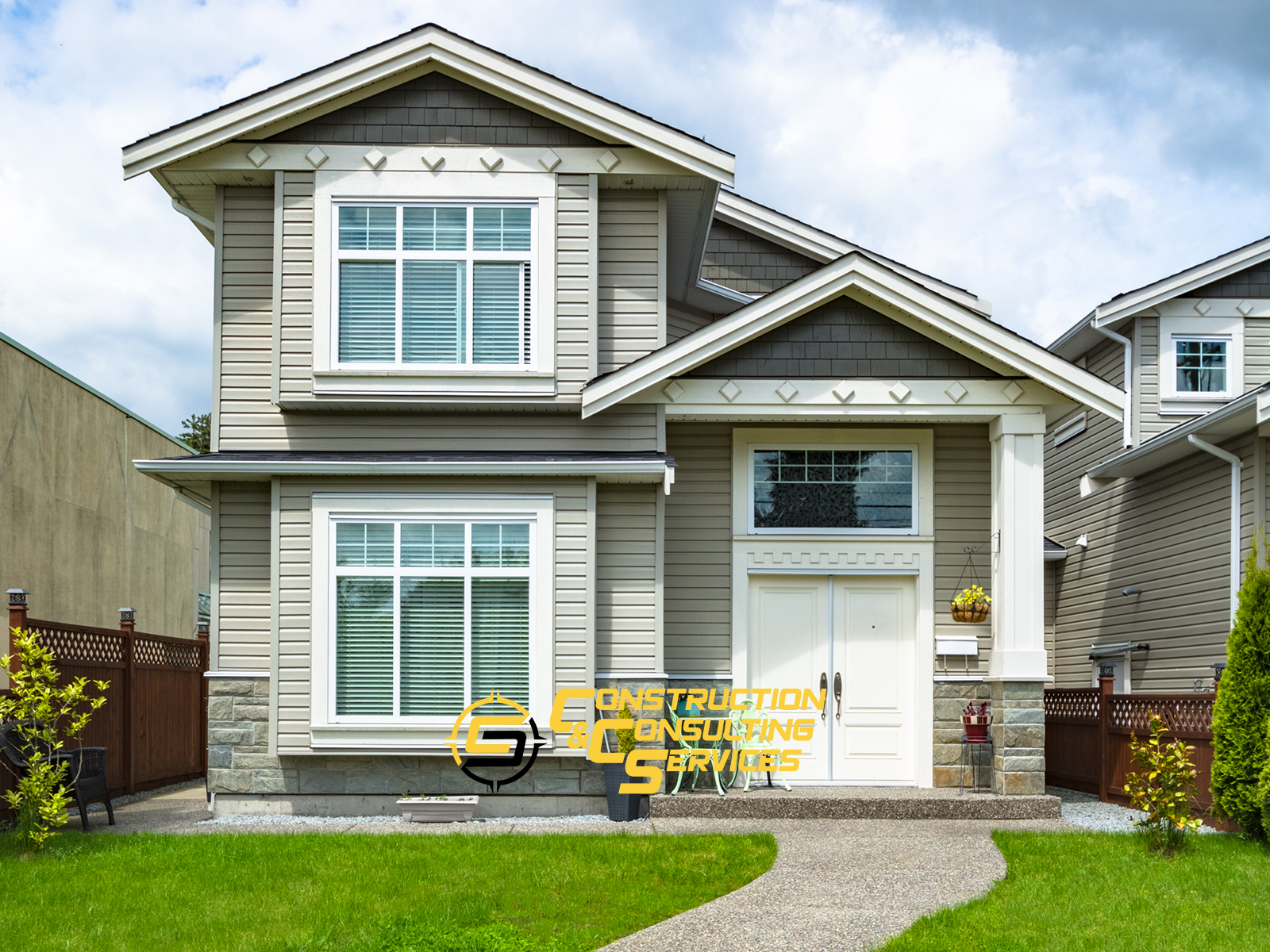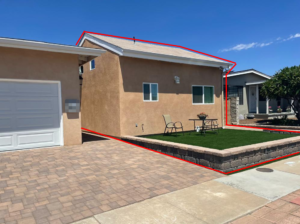 Unlocking Housing Potential: AB 1033 Paves the Way for Accessory Dwelling Units in California
Unlocking Housing Potential: AB 1033 Paves the Way for Accessory Dwelling Units in California
California’s housing crisis has long been a focal point for policymakers, activists, and residents alike. With skyrocketing rents and housing prices pushing many families to the brink of financial instability, innovative solutions are needed to alleviate the pressure. One such solution is the promotion of accessory dwelling units (ADUs), also known as granny flats or in-law units, which offer a promising avenue to increase housing supply without the need for extensive new construction.
Recently, California took a significant step forward in this regard with the passage of Assembly Bill 1033 (AB 1033), introduced by Assemblymember Phil Ting. AB 1033 builds upon existing legislation to streamline the process for the creation of ADUs and expand opportunities for their development across the state.
A Closer Look at AB 1033
AB 1033 is designed to empower local agencies to facilitate the creation of ADUs within their jurisdictions by providing clear guidelines and standards for their implementation. The bill authorizes local governments to adopt ordinances that allow for the separate sale or conveyance of ADUs, providing homeowners with greater flexibility in how they utilize their properties.
Can I Sell My ADU Separately in California?
Yes, with the new law in California, Assembly Bill 1033 (AB 1033), you can now sell your Accessory Dwelling Unit (ADU) separately. This bill expands an existing provision in state law, allowing homeowners to independently sell their ADUs.
What is the New Law in California for ADU?
AB 1033 is the new law in California that allows homeowners to sell their ADUs separately. This law empowers cities and counties to offer this option to all residents within their jurisdiction, providing more Californians with access to affordable housing through ADU conversions.
Do I Have to Pay Property Tax on an ADU Unit Separately in California?
Yes, with the new law, you will need to pay property tax on your ADU unit separately. When you sell your ADU, it will be considered a separate property, and you will be required to pay property taxes on it.
What is AB 1033?
AB 1033 (Ting) is a bill designed to expand an existing provision in state law, allowing homeowners to independently sell their ADUs. This bill is groundbreaking because it empowers cities and counties to make the decision to offer this option to all residents within their jurisdiction, providing more Californians with access to affordable housing through ADU conversions.
What Does AB 1033 Allow?
AB 1033 allows homeowners to independently sell their ADUs on their properties. This is a transformative step forward, as it offers homeowners greater flexibility in managing their assets and provides an avenue for generating additional income through ADU sales.
Can I Sell My ADU in California?
Yes, with the new AB 1033 bill, you can now sell your ADU separately in California. This bill allows homeowners to sell their ADUs independently, providing a new opportunity for generating income and managing assets.
By streamlining the approval process and providing greater flexibility for homeowners, AB 1033 aims to unlock the untapped potential of ADUs as a tool for increasing housing supply and addressing affordability challenges in California.
Implications and Considerations
While AB 1033 represents a significant step forward in promoting ADUs, it also raises important considerations for local governments and communities. One key concern is the potential impact on neighborhoods, including issues related to parking, density, and neighborhood character.
Local agencies must strike a balance between promoting housing affordability and ensuring that ADU development is compatible with existing community needs and preferences. This may require thoughtful planning and community engagement to address concerns and mitigate potential conflicts.
Additionally, the success of AB 1033 will depend on effective implementation and enforcement at the local level. Building awareness among homeowners about the opportunities afforded by ADUs and providing support for the development process will be crucial in realizing the bill’s objectives.
Looking Ahead
As California continues to grapple with its housing crisis, innovative solutions like ADUs offer a glimmer of hope for expanding housing options and increasing affordability. AB 1033 represents a significant milestone in this journey, providing local agencies with the tools and authority to facilitate ADU development in their communities.
By embracing ADUs as a viable housing solution and leveraging the provisions of AB 1033, California can unlock the full potential of these accessory units to provide safe, affordable housing for residents across the state. As we look to the future, continued collaboration between policymakers, stakeholders, and communities will be essential in realizing this vision of a more inclusive and sustainable housing landscape in California.
Streamlining the Approval Process
One of the key provisions of AB 1033 is the streamlining of the approval process for ADUs. The bill mandates that permit applications for ADUs be considered and approved ministerially, without discretionary review or a hearing, within a specified timeframe. This streamlined approach removes unnecessary barriers to ADU development, allowing homeowners to navigate the permitting process more efficiently and effectively.
Clear Standards and Guidelines
AB 1033 also establishes clear standards and guidelines for the creation of ADUs, ensuring consistency and predictability in the development process. The bill sets parameters for unit size, height, setbacks, and other design elements, while also prohibiting local agencies from imposing additional requirements that would impede ADU development. By providing a standardized framework for ADU approval, AB 1033 simplifies the process for homeowners and promotes greater consistency in ADU design and construction.
Key Provisions of the New AB 1033 Law
- Local agencies cannot impose parking standards for ADUs in certain instances, such as when the ADU is within walking distance of public transit or in an architecturally and historically significant historic district.
- Homeowners can sell their ADUs separately from the primary residence.
- Local agencies must ministerially approve ADU permit applications that meet specific requirements, such as being within an existing single-family dwelling or multifamily dwelling structure.
- Fees charged for ADU construction are limited, and connection fees or capacity charges for utilities are waived or proportionally reduced.
- Local agencies cannot require the correction of nonconforming zoning conditions or building code violations as a condition for approving an ADU permit application.
- The law supersedes conflicting local ordinances and allows local agencies to adopt less restrictive requirements for ADU creation.
- We’ve streamlined the process based on the latest amendments to Section 65852.2 of the Government Code. Here’s what you need to know:
- Designation of ADU Permitted Areas: Local agencies are tasked with designating areas where ADUs may be permitted, taking into account factors such as water and sewer services, traffic flow, and public safety.
- Objective Standards: The bill imposes objective standards on ADUs related to parking, height, setback, landscape, architectural review, and maximum size. Importantly, it prohibits requirements on minimum lot size, ensuring that ADUs can be developed even on smaller parcels of land.
- Density and Zoning Compliance: ADUs must not exceed the allowable density for the lot and must be consistent with existing general plan and zoning designations.
- Separate Conveyance: AB 1033 allows for the separate conveyance of primary dwelling units and ADUs as condominiums, granting homeowners the option to sell or transfer these units independently.
- Parking Requirements: Parking requirements for ADUs are capped at one space per unit or per bedroom, whichever is less, with allowances for tandem parking and parking in setback areas.
- Zoning Designations: Find out where ADUs are permitted within your local jurisdiction, taking into account factors like water and sewer services and their impact on traffic flow and public safety.
- Objective Standards: We’ve set clear guidelines on parking, height, setbacks, landscape, and more to ensure ADUs are harmonious with the existing surroundings. Plus, we may even waive parking requirements in certain cases!
- Residential Consistency: ADUs should blend seamlessly with the existing general plan and zoning of the area without exceeding allowable density.
- Compliance: From rental restrictions to size limitations, we ensure that ADUs comply with all necessary regulations to maintain safety and quality standards.
- Streamlined Approval Process: Say goodbye to lengthy reviews! Permit applications for ADUs are processed within 60 days without discretionary review, ensuring a hassle-free experience for homeowners.
- Demolition Permits: Need to replace a detached garage with an ADU? We’ve got you covered. Demolition permits are reviewed and issued simultaneously with ADU applications.
- Consumer Information: We provide clear guidance and resources to help you navigate the ADU creation process with ease.
- No Arbitrary Delays: We ensure that no local ordinance, policy, or regulation can unnecessarily delay or deny building permits or use permits for ADUs.
- Maximum Standards: We’ve established comprehensive standards for evaluating proposed ADUs on lots with existing single-family dwellings, eliminating the need for additional requirements.
- Zoning Updates: Local agencies have the flexibility to amend zoning ordinances or general plans to align with ADU creation policies, provided they meet the limitations outlined.
- Condominium Conversion: In addition to allowing separate sale or conveyance of ADUs, local agencies can adopt ordinances to permit the separate sale of primary dwelling units and ADUs as condominiums, subject to certain conditions.
- Liability Protection: We prioritize safety by requiring safety inspections before recording condominium plans, ensuring that all units meet housing quality standards.
- Lienholder Consent: To protect all parties involved, consent from lienholders is mandatory before recording subdivision maps or condominium plans. We provide clear guidelines on this process to streamline approvals.
- Consumer Awareness: We include a notice to consumers on our website and in all relevant documentation, outlining the requirements and permitting processes for ADUs, ensuring transparency and clarity for homeowners.
Conclusion
AB 1033 represents a remarkable stride towards making homeownership more accessible and affordable in California by selling the ADU separately. As a company that offers the full spectrum of ADU services, including plans, permits, construction, rentals, and more, CCS Inc is excited about the potential this legislation holds for our clients and communities across the state.
The future of affordable housing through ADU conversions in California is looking brighter than ever, start your ADU project today with CCS Inc:





